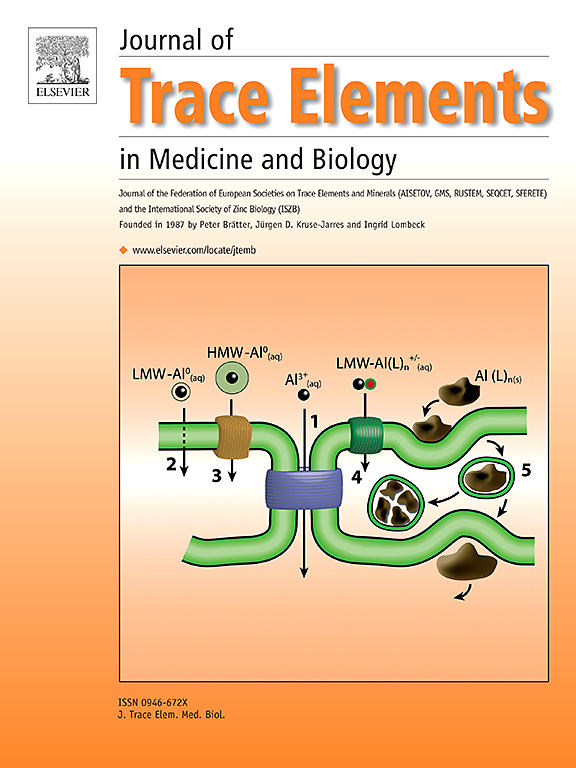Exploring fluoride's role in diabetes development: A review
IF 3.6
3区 医学
Q2 BIOCHEMISTRY & MOLECULAR BIOLOGY
Journal of Trace Elements in Medicine and Biology
Pub Date : 2025-03-17
DOI:10.1016/j.jtemb.2025.127635
引用次数: 0
Abstract
Purpose
The element fluorine, which is never found in nature in a free state, is the source of the fluoride ion. When fluoride intake is excessive, it can cause various impairments in living organism. This review aims to assess the relationship between fluoride exposure and glucose metabolism, considering positive, negative, and null findings, with a focus on its potential role in insulin resistance and diabetes-related complications.
Methods
Numerous studies that have demonstrated changes in blood glucose and insulin variations due to fluoride are included in our analysis on the bases of their relevance. Twenty significant research papers from Pubmed, Google Scholar, and Research Gate are included up to January 2025 using search terms such as “Fluoride,” “Toxicity,” “Diabetes,” “Insulin resistance,” “fluoride and diabetes,” “fluoride and insulin,” “fluoride and blood glucose” in this review. Of the 20 research papers, 14 involve normal organisms unaffected by diabetes or complications connected to the disease, serving as standard animal models, while 5 involve animals exposed to diabetes and 1 is a human population study.
Results
The findings suggest a negative association between fluoride exposure and diabetes, as studies indicate fluoride’s potential role in impairing glucose homeostasis and increasing insulin resistance. These research studies showed how fluoride affected the participants' blood sugar and diabetes-related complications.
Conclusion
This study highlights how important it is to comprehend how fluoride may contribute to diabetes or diabetes-related complications, and it makes recommendations for future research directions that might lead to the discovery of efficient treatment measures to avoid them.
求助全文
约1分钟内获得全文
求助全文
来源期刊
CiteScore
6.60
自引率
2.90%
发文量
202
审稿时长
85 days
期刊介绍:
The journal provides the reader with a thorough description of theoretical and applied aspects of trace elements in medicine and biology and is devoted to the advancement of scientific knowledge about trace elements and trace element species. Trace elements play essential roles in the maintenance of physiological processes. During the last decades there has been a great deal of scientific investigation about the function and binding of trace elements. The Journal of Trace Elements in Medicine and Biology focuses on the description and dissemination of scientific results concerning the role of trace elements with respect to their mode of action in health and disease and nutritional importance. Progress in the knowledge of the biological role of trace elements depends, however, on advances in trace elements chemistry. Thus the Journal of Trace Elements in Medicine and Biology will include only those papers that base their results on proven analytical methods.
Also, we only publish those articles in which the quality assurance regarding the execution of experiments and achievement of results is guaranteed.

 求助内容:
求助内容: 应助结果提醒方式:
应助结果提醒方式:


